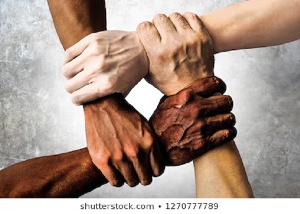 Prioritising human rights in sports is the key to a strong, sustainable recovery
Prioritising human rights in sports is the key to a strong, sustainable recovery
The General Assembly of the United Nations proclaimed the Universal Declaration of Human Rights (UDHR) on 10 December, 1948. It represents a common standard of achievement for all nations and set out, for the first time, fundamental human rights to be universally protected.
Despite not being a legally binding document, the UDHR has been hugely influential in political, legal and social developments, both nationally and internationally. It has been translated 524 times and holds the record for the most translations of any document in history, proving its significance in development over more than 70 years.
The Declaration belongs to every one of us, it is our responsibility and our right to access it, read it and claim it as our own.
Observing Human Rights Day on 10 December is an opportunity to recognise that each of us around the world have the right to live in peace without discrimination.
“There can be no peace without development, no development without peace, and no lasting peace or sustainable development without respect for human rights and the rule of law.” – Former UN Deputy Secretary, General Jan Eliasson
At Mission 89 our aim is to prevent the trafficking of minors in sport, and we do this through research, education and advocacy for policies and regulations that safeguard children from exploitation.
Raising awareness of this issue is vital to our understanding of the ways in which a young athlete’s human rights can be violated in the pursuit of a career in sport. In particular, Articles 3, 4 and 5 are crucial in protecting minors in sport whose situation makes them especially vulnerable to exploitation.
Currently the question of the relationship between sport and the protection of human rights has never been higher on the international sport policy agenda. This increased interest reflects the integral role that sport plays in all our lives; the universality of sport is well-matched to the universality of the Declaration of Human Rights.
Instilling a profound understanding and culture of human rights into sport at all levels will enhance the credibility of organised sport, but it will also help consolidate the framework necessary for sports to deliver benefits such as health, equality and inclusion and education.
In this way, sports can become an enabler of sustainable development and help in achieving internationally-recognised Sustainable Development Goals (SDGs). Mission 89’s goals align with the United Nations 2030 SDGs, specifically Goal 1 (the eradication of poverty), 4 (education), 8 (economic growth) and 16 (peace and justice).
The issue of human rights in sport was addressed in Tbilisi, during the 2018 Ministerial Conference organised by EPAS (Enlarged Partial Agreement on Sport).
The Tbilisi Declaration, also known as the International Declaration on Human Rights and Sport, recognises the responsibility the sport movement has to protect human rights, stating that there must be a commitment to “introduce human rights objectives in the whole life cycle of major sporting events, starting with the bidding process and including planning for a lasting positive legacy.”
"What is clear, is that promoting the values of sport, a healthy lifestyle for society and the right for everyone to practice physical activity, is required now more than ever. And this process should be driven by a concern for the protection of human rights." - EPAS
The recently published EU Work plan for Sport 2021-2024 has also prioritised safeguarding children in sports, acknowledging the importance of asserting universal human rights in the protection of minors as well as recognising the capacity sport has to facilitate Sustainable Development Goals.
Mission 89’s belief that a multi-agency approach is essential in protecting vulnerable young athletes from trafficking in sport. This sentiment is echoed in the work plan, which emphasises the need for “appropriate cooperation” with the sports movement and relevant stakeholders, including international governmental and non-governmental organisations.
Acknowledging the vital relationship between sport and human rights is a huge step forward, but we must ensure that the awareness of the issue is raised, and that the policy guidelines developed by international organisations are disseminated, implemented and monitored all over the world.
The theme for this year’s Human Rights Day, Recover Better, reframes the importance of human rights in sport in light of the COVID-19 pandemic. The implementation and safeguarding of human rights in all sectors is crucial to recovery efforts, as the devastation brought by the Coronavirus has exposed systematic inequalities, discrimination and exploitation.
The pandemic emphasised the simple truth: a world that is committed to the rights of all is a world that is better prepared to deal with an unanticipated crisis.
In sports we need to address these inequalities by guaranteeing the application of human rights standards as we recover in a post-COVID climate. Putting the human rights of every individual at the forefront of our redevelopment will help us build a world that is stronger and more sustainable.
This Human Rights Day, Mission 89 urges you to consider how closing inequality and discrimination gaps can help us to recover better. This year has been a testament to such values as compassion and global solidarity, let us now use human rights as means of seeking health, safety and freedom for all and ending human trafficking in sport.